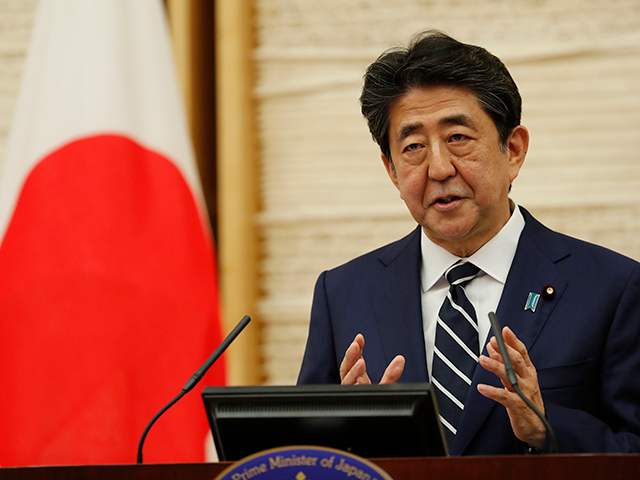Photos appearing to show Chinese vendors offering beverage discounts in celebration of former Japanese Prime Minister Abe Shinzo’s assassination began to crop up on Chinese social media platforms including Weibo on Friday, Taiwan’s Apple Daily newspaper reported.
The photos appeared to show Chinese cafes offering beverage discounts in “celebration” of Abe’s assassination on July 8.
“Celebrating Abe’s death Milktea buy 1 get 1 free for 3 days straight [sic],” read an English translation of one of the Chinese language-printed banners.
“Celebrating Abe’s death, Buy 1 get 1 free [sic],” read another promotion.
“Celebration Abe’s assassination, all beer buy 1 get 1 free [sic],” read an additional poster.
Taiwan’s Liberty Times newspaper also published photos of the Abe assassination-themed beverage discounts in China on July 8. Evidence of the phenomenon began circulating on Twitter on Friday after an account for an organization called the “Great Translation Movement” began reposting photos of the distasteful advertisements.
The “Great Translation Movement” is an anonymous, volunteer-based online organization that aims, in part, to “expose China’s pro-Russia propaganda by highlighting mistranslations that falsely blame Ukrainian troops for bombings and atrocities perpetrated by Russian forces against civilians,” the U.K.’s Guardian newspaper reported in May.
The social media posts advertising free drinks in honor of Abe’s death on Friday are indicative of a general wave of anti-Abe sentiment that has washed over Chinese social media outlets in the wake of his shocking murder while delivering a campaign speech in western Japan.
Japan’s longest-serving prime minister, Abe Shinzo, was fatally shot on the morning of July 8 by a male Japanese suspect wielding what authorities have described as a homemade firearm. Abe, 67, had stepped down as Japan’s prime minister in September 2020 but was still active in politics. He was delivering a campaign speech in support of Japan’s conservative Liberal Democratic Party (LDP) two days ahead of a national election when he was gunned down on Friday.
Abe’s politically conservative views influenced him to hold a strong line against Chinese aggression toward Japan, which has most recently been demonstrated through repeated Chinese naval and coast guard intrusions into Japanese maritime territory. Abe led constitutional and legislative reforms that allowed Japan to revamp its Self-Defense Forces (Japan’s constitution does not allow it to have a military). Abe’s support for elevating Japan’s foreign policy stature made him a hated enemy of the Chinese Communist Party, as evidenced by Chinese regime-controlled social media outlets such as Weibo, Wechat, and Youku becoming home to a large volume of posts celebrating his death.
The Times of India observed on July 8 that some Chinese social media users “celebrated” the news of Abe’s fatal shooting “and even hailed the attacker as a ‘hero.'”
China’s Communist Party-run Global Times added insult to injury on Friday by claiming that Abe died earlier that day with a “bad reputation” among the Chinese public. The newspaper alleged that this was due, in part, to Abe’s decision in 2013 to visit Tokyo’s Yasukuni Shrine. The shinto shrine was established in 1869 to honor Japanese war casualties, including some Japanese war criminals from World War II. The inclusion of these criminals upsets China, which fought against Japan during the conflict.

COMMENTS
Please let us know if you're having issues with commenting.